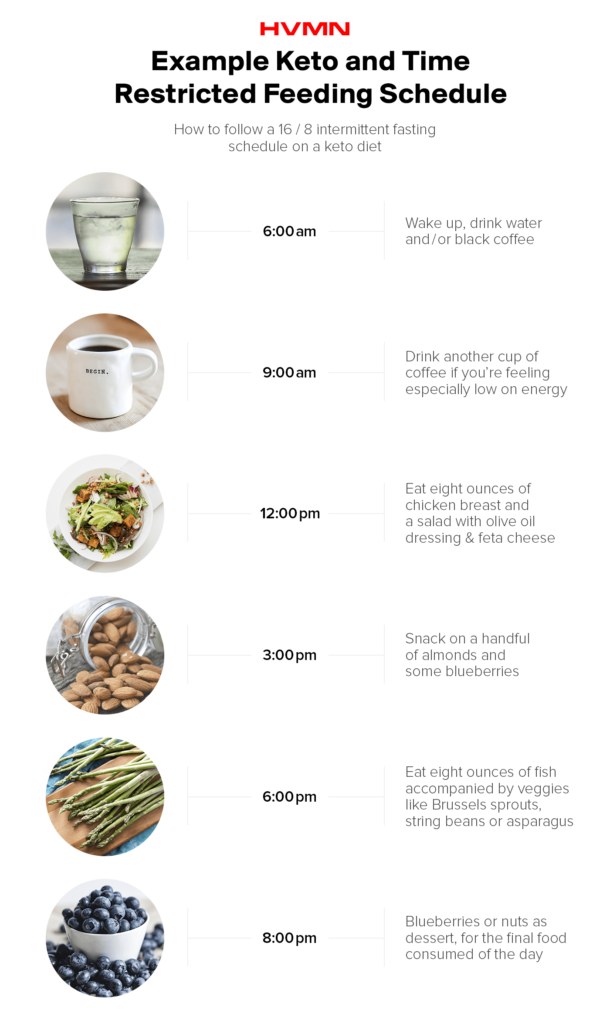Understanding the intricate relationship between gut microbiome health and metabolic performance is crucial for achieving optimal well-being. Dr. Annette Bosworth addresses this connection through insightful discussions, highlighting how a well-functioning gut microbiome can enhance the production of GLP-1, a hormone essential for metabolism regulation. This article will explore various aspects of gut health, including its role in combating chronic conditions like obesity and diabetes, the potential of probiotics in promoting gastrointestinal function, and the importance of personalized health solutions.
By examining the mechanisms through which gut microbiome optimization can improve metabolic function, you will gain valuable insights into dietary influences and probiotic dynamics. This information will not only empower you to make informed choices but also encourage continuous monitoring and adjustments to enhance metabolic health. As the emphasis remains on educational content rather than medical advice, consulting with your personal physician for specific health concerns is strongly advised.
Understanding the Gut Microbiome

Definition and Composition of Gut Microbiome
The gut microbiome consists of trillions of microorganisms, including bacteria, viruses, fungi, and other microbes residing in your gastrointestinal tract. These microorganisms play a crucial role in various bodily functions, ranging from digestion to immune response. The composition of gut microbiome varies significantly from person to person, influenced by factors such as diet, environment, genetics, and lifestyle choices. A balanced microbiome typically has a diverse array of bacteria, contributing to a robust metabolic and immune function.
Role of Gut Microbiome in Human Health
Your gut microbiome is often referred to as a “forgotten organ” due to its significant impact on overall health. It aids in digestion by breaking down complex carbohydrates and synthesizing vitamins. Moreover, the microbiome influences various metabolic pathways, thereby affecting energy balance and nutritional absorption. A healthy gut microbiome promotes optimal health and wellbeing by reducing the risk of chronic diseases such as obesity, diabetes, and inflammatory conditions.
Interactions Between Gut Microbiome and the Immune System
The gut microbiome plays a pivotal role in shaping your immune response. It acts as a barrier to pathogens, training your immune system to recognize harmful invaders while maintaining tolerance to non-threatening ones. Dysbiosis, or an imbalance in the gut microbiome, can lead to an overactive immune response, resulting in allergies and autoimmune diseases. Thus, maintaining a healthy gut microbiome is essential for a well-functioning immune system.
Connection Between Gut Health and Metabolism
How Gut Microbiome Influences Metabolic Pathways
Your gut microbiome profoundly influences metabolic pathways by metabolizing complex carbohydrates and producing short-chain fatty acids, which serve as energy sources for colon cells. Additionally, specific gut bacteria can affect how your body processes fats and sugars. A balanced microbiome has been associated with improved metabolic rates and reduced fat storage, ultimately influencing weight management and energy levels.
The Role of GLP-1 in Metabolism Regulation
Glucagon-like peptide-1 (GLP-1) is an incretin hormone that plays a significant role in regulating your metabolism. It enhances insulin secretion, inhibits glucagon release, and promotes satiety, thereby helping to control your blood sugar levels. Studies suggest that certain gut bacteria can stimulate the production of GLP-1, indicating a direct link between your gut health and metabolic regulation. Therefore, optimizing your gut microbiome may lead to enhanced GLP-1 production, contributing to better metabolic health.
Impact of Gut Dysfunction on Obesity and Diabetes
Gut dysfunction, characterized by dysbiosis, can lead to various metabolic disorders, including obesity and diabetes. An imbalanced microbiome negatively affects insulin sensitivity and promotes inflammation, contributing to the development of insulin resistance. Consequently, addressing gut dysfunction through dietary and probiotic interventions may play a critical role in preventing and managing these chronic health conditions.
The Role of Probiotics in Metabolic Performance
What Are Probiotics and How Do They Work?
Probiotics are live microorganisms that, when administered in adequate amounts, confer health benefits on the host. They work by improving gut microbiome balance, enhancing digestion, and bolstering immune function. Probiotics can inhibit the growth of pathogenic bacteria and reduce inflammation, contributing to overall gut health and metabolic performance. Utilizing specific strains tailored to your health needs can amplify these benefits.
Specific Strains Beneficial for Metabolism
Certain probiotic strains have shown particular promise in enhancing metabolic health. For instance, the strain Akkermansia muciniphila is associated with improved insulin sensitivity and weight management. Other strains, such as Lactobacillus and Bifidobacterium, can also contribute positively to metabolism by enhancing gut barrier function and modulating inflammation. By incorporating these strains into your diet through supplements or fermented foods, you can actively support your metabolic health.

Clinical Studies Supporting Probiotic Efficacy
Numerous clinical studies have explored the efficacy of probiotics in improving metabolic health. These studies demonstrate how specific probiotic strains positively influence body weight, insulin sensitivity, and lipid profiles. By investigating the relationship between gut microbiome composition and metabolic outcomes, researchers have evidenced the potential of probiotics as therapeutic agents for metabolic disorders, paving the way for their inclusion in dietary strategies aimed at enhancing metabolic performance.
Dietary Strategies for Optimizing Gut Health
Foods That Promote a Healthy Gut Microbiome
To foster a healthy gut microbiome, it’s imperative to include a variety of foods in your diet. Fermented foods such as yogurt, kefir, sauerkraut, and kimchi are rich in probiotics and promote bacterial diversity. Additionally, prebiotic-rich foods like garlic, onions, asparagus, and bananas serve as food for beneficial gut bacteria, fostering a thriving microbiome. Incorporating these foods into your daily diet can significantly enhance your gut health.
Importance of Fiber and Prebiotics
Dietary fiber plays a crucial role in maintaining gut health, as it promotes regular bowel movements and provides fuel for beneficial bacteria. Prebiotics, a type of fiber, specifically aid in nourishing your gut microbiome. By including high-fiber foods such as whole grains, legumes, fruits, and vegetables in your meals, you can support the growth of beneficial bacteria and, in turn, enhance your metabolic function.
Effects of a Ketogenic Diet on Gut Health
The ketogenic diet, characterized by low carbohydrate and high-fat intake, has gained popularity for its potential weight loss benefits. However, its effects on gut health are complex. While some may experience improvements in gut health due to weight loss and reduced inflammation, others may face challenges related to limited dietary diversity. Incorporating fiber-rich, low-carb vegetables and fermented foods while following a ketogenic lifestyle can mitigate negative impacts and promote a healthier microbiome.
Identifying Gut Health through Biomarkers
Understanding Bowel Movement Quality
The quality of your bowel movements serves as an essential indicator of gut health. Characteristics such as the frequency, consistency, and appearance of stool can provide insights into your digestive function and microbiome composition. Regular and well-formed bowel movements often indicate a balanced gut microbiome, while issues such as diarrhea, constipation, or abnormal stool appearance may signal underlying gut dysfunction.
Stool Tests as Indicators of Gut Microbiome Performance
Stool tests have emerged as a valuable tool for assessing gut microbiome performance. These tests analyze the composition of your gut bacteria and their functional potential, helping identify dysbiosis or microbial imbalances. By evaluating your stool sample, health professionals can tailor interventions, including dietary adjustments or probiotics, to optimize your gut health and overall metabolic performance.
Linking Biomarkers to Metabolic Health
Emerging research highlights the connection between specific gut health biomarkers and metabolic health. By analyzing factors such as fatty acid profiles and inflammatory markers, scientists can gain insights into your metabolic status. Changes in bowel movement quality and stool composition can reflect shifts in your gut microbiome, ultimately influencing metabolic outcomes. Tracking these biomarkers may provide a clearer understanding of your metabolic health and guide personalized interventions.
The Dynamics of Probiotic Formulations
Conditions Necessary for Probiotic Efficacy
For probiotics to be effective, they must meet certain conditions. This includes being alive upon consumption, surviving the gastrointestinal tract, and colonizing the gut adequately. Specific strains require unique environmental conditions, such as an oxygen-free environment, to thrive and exert their beneficial effects. Understanding these conditions can enhance the efficacy of probiotic interventions and optimize gut health.

Understanding the Survival of Probiotics in the Gut
Probiotic survival in the gut is a critical factor influencing their effectiveness. The highly acidic environment of the stomach and the presence of bile salts can challenge probiotic viability. Research indicates that formulating probiotics with protective encapsulation or utilizing specific strains that are more resilient can improve survival rates and ensure that beneficial microorganisms reach the intestines alive.
Challenges with Commercial Probiotic Supplements
Not all commercial probiotic supplements are created equal. Many face challenges, including mislabeling, insufficient potency, and reduced shelf stability due to poor manufacturing processes. As a result, it is essential to choose high-quality probiotics backed by clinical research. Conducting due diligence and consulting health professionals can help you navigate the vast array of options available on the market.
Complementary Approaches to Metabolic Health
Role of Medication Like GLP-1 in Metabolic Control
Medications that mimic or enhance the effects of GLP-1, such as GLP-1 receptor agonists, play a key role in controlling blood sugar levels and promoting weight loss. These treatments are especially beneficial for individuals with type 2 diabetes or obesity. By improving insulin sensitivity and reducing appetite, GLP-1 medications can significantly influence your metabolic health.
How Probiotics Can Enhance GLP-1 Production
Research indicates that probiotics may enhance the production of GLP-1, further linking gut health with metabolic regulation. Specific strains of probiotics have shown the potential to stimulate GLP-1 secretion from the intestinal L-cells. By optimizing your gut microbiome, you may not only improve digestive health but also support the body’s natural mechanisms for regulating blood sugar and promoting satiety.
Holistic Approaches to Weight Management
A holistic approach to weight management encompasses various strategies beyond diet and exercise, including optimizing gut health and utilizing probiotics. By integrating dietary changes, regular physical activity, stress management, and adequate sleep, you can create a comprehensive plan for achieving and maintaining a healthy weight. This well-rounded approach not only addresses metabolic health but also nurtures your mental and emotional wellbeing.
Challenges in Probiotic Selection
Identifying Quality Probiotics from Commercial Options
In a market flooded with probiotic supplements, selecting high-quality products can be daunting. Look for evidence-based formulations containing well-researched strains, proper labeling of colony-forming units (CFUs), and transparent production standards. Consulting healthcare professionals can help you identify products backed by clinical evidence and tailored to your health needs.
Risks of Mislabeled or Ineffective Products
Mislabeled or ineffective probiotic products pose risks to your health. Some may contain fewer viable organisms than advertised, while others may lack the specific strains that confer desired health benefits. It’s crucial to conduct thorough research and choose reputable brands to avoid wasting time and money on ineffective supplements.
Importance of Consulting Health Professionals
Consulting health professionals is vital for personalized probiotic selection and gut health optimization. They can evaluate your unique health needs, recommend appropriate strains, and monitor your progress. This guidance can help you make informed decisions, ensuring that your efforts toward improving gut health contribute positively to your overall wellbeing.
Cost Considerations for Probiotic Solutions
Factors Contributing to the Cost of Probiotics
The cost of probiotics can vary significantly based on several factors, including the complexity of the formulation, the quality of ingredients, and the research backing the product. Higher-quality probiotics, formulated for efficacy and stability, often come at a premium. Understanding these cost factors can help you make informed purchasing decisions while prioritizing your health.
Value of High-Quality Probiotics Versus Cheap Alternatives
Investing in high-quality probiotics may provide better value in the long run compared to cheaper alternatives. High-quality products often undergo rigorous testing and formulation processes, ensuring potency and viability. Choosing quality over cost can enhance the likelihood that you’re genuinely supporting your gut health and metabolic performance.
Consumer Demand for Affordable Health Solutions
An increasing consumer demand for affordable health solutions has led to a broader range of probiotic products. While affordability is important, it is equally essential to scrutinize the quality and efficacy of these products. Balancing affordability with quality can be challenging, but investing in effective probiotics may lead to greater health benefits and improved quality of life.
Conclusion
Recap of the Importance of Gut Microbiome for Metabolic Health
In conclusion, the gut microbiome plays a vital role in regulating metabolic health. Its influence on digestion, immune function, and metabolic pathways highlights the importance of maintaining a healthy gut. By understanding and optimizing your gut microbiome, you can significantly enhance your overall health and well-being.
Encouragement to Seek Personalized Health Solutions
As you navigate the complexities of gut health, remember that personalized approaches yield the best results. Tailoring your diet, incorporating probiotics, and seeking professional guidance can help you achieve optimal metabolic health. Embrace the journey to better health, making informed choices that support your unique needs.
Reminder to Consult Health Professionals for Tailored Advice
Always consult healthcare professionals before making significant changes to your diet or starting new supplements. They can guide you based on your individual health concerns and requirements, ensuring that your approach is safe and effective. Prioritizing expert advice in your health journey is crucial to long-term success and improved metabolic performance.







